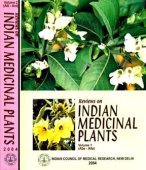Agati, Āgati, Agatī: 19 definitions
Introduction:
Agati means something in Buddhism, Pali, Hinduism, Sanskrit, Marathi, Hindi, biology. If you want to know the exact meaning, history, etymology or English translation of this term then check out the descriptions on this page. Add your comment or reference to a book if you want to contribute to this summary article.
Agati has 18 English definitions available.
Languages of India and abroad
Sanskrit dictionary
[Deutsch Wörterbuch]
Source: Cologne Digital Sanskrit Dictionaries: Böhtlingk and Roth Grosses Petersburger WörterbuchĀgati (आगति):—(von gam mit ā) f.
1) Ankunft (auch Wiederkunft), das Kommen [Ṛgveda 2, 5, 6.] [Vājasaneyisaṃhitā 20, 13.] [Yājñavalkya’s Gesetzbuch 3, 170.] das Entstehen: jānīte lokasyāsya gatāgatim [Rāmāyaṇa 2, 110, 1.] —
2) Zufall [Daśakumāracarita] in [Benfey’ Chrestomathie aus Sanskritwerken 193, 9.]
--- OR ---
Agati (अगति):—(3. a + ga) f. die Unmöglichkeit irgendwohin zu gehen, zu gelangen (eig. und übertr.): agatistatra rāmasya yatra gamiṣyāmi vihāyasā [Rāmāyaṇa 3, 44, 25. 47, 4.] nāstyagatirmanorathānām Unmöglichkeit des Gelingens [Vikramorvaśī 26, 3.] [Scholiast] zu [Jaimini 1, 17.] das Nichtbeiwohnen dem Weibe [Oxforder Handschriften 272,a,12.]
--- OR ---
Āgati (आगति):—
1) Ankunft [Śiśupālavadha 9, 43.] Entstehung [Oxforder Handschriften 312,a, No. 745, Z. 21.] hṛdisthārthāgatyā so v. a. indem das, woran er gerade denkt, hinzukommt, sich hinzugesellt [Sāhityadarpana 132, 7.] —
2) zu streichen, da das Wort auch hier das Herkommen, Herstammen (eines Dinges) bedeutet. [BENFEY] giebt das Wort durch concern wieder, eben so übersetzt er āgatva (s. oben u. 2. āga) .
Source: Cologne Digital Sanskrit Dictionaries: Sanskrit-Wörterbuch in kürzerer FassungAgati (अगति):—f. —
1) Unmöglichkeit irgendwohin zu gehen , — zu gelangen. —
2) das seinem Weibe Nichtbeiwohnen. —
3) das nicht zum Ziele Gelangen , das nicht zu Stande Kommen (von Wünschen).
--- OR ---
Āgati (आगति):—f. —
1) Ankunft , Wiederkunft. —
2) das Herkommen , Herstammen. —
3) Entstehung. —
4) das Hinzukommen , Sichhinzugesellen.
Sanskrit, also spelled संस्कृतम् (saṃskṛtam), is an ancient language of India commonly seen as the grandmother of the Indo-European language family (even English!). Closely allied with Prakrit and Pali, Sanskrit is more exhaustive in both grammar and terms and has the most extensive collection of literature in the world, greatly surpassing its sister-languages Greek and Latin.
See also (Relevant definitions)
Starts with: Agati sesbania, Agati Sutta, Agati-keerai, Agatigati, Agatika, Agatikagati, Agatikate, Agatike, Agatilo, Agatishila, Agitinnu.
Ends with (+306): Abhinnagati, Abhipradakshinavartagati, Adalitagati, Adhvagati, Adityagati, Agatikagati, Ajagati, Akashagati, Alakshyagati, Alpagati, Amdagati, Amitagati, Amkanagati, Amritagati, Anagati, Anantagati, Ananyagati, Anatyantagati, Animishagati, Anivaragati.
Full-text (+103): Bakapushpa, Ag, Akati, Munitaru, Munipushpaka, Buka, Kuṇalin, Munidruma, Agatika, Munibheshaja, Ekashthila, Dirghaphalaka, Supuraka, Gatagati, Sunalaka, Samagati, Kakanaman, Shighrapushpa, Agai, Shivashekhara.
Relevant text
Search found 30 books and stories containing Agati, Āgati, Agaṭī, Āgaṭī, Āgatī, A-gati, Ā-gati, Agatī; (plurals include: Agatis, Āgatis, Agaṭīs, Āgaṭīs, Āgatīs, gatis, Agatīs). You can also click to the full overview containing English textual excerpts. Below are direct links for the most relevant articles:
Mandukya Upanishad (Madhva commentary) (by Srisa Chandra Vasu)
Karika verse 3.9 < [Chapter 3 - Third Khanda]
Bhajana-Rahasya (by Srila Bhaktivinoda Thakura Mahasaya)
Text 12 < [Chapter 3 - Tṛtīya-yāma-sādhana (Pūrvāhna-kālīya-bhajana–niṣṭhā-bhajana)]
Text 9 < [Chapter 3 - Tṛtīya-yāma-sādhana (Pūrvāhna-kālīya-bhajana–niṣṭhā-bhajana)]
Brihad Bhagavatamrita (commentary) (by Śrī Śrīmad Bhaktivedānta Nārāyana Gosvāmī Mahārāja)
Verse 1.5.37 < [Chapter 5 - Priya (the beloved devotees)]
Reverberations of Dharmakirti’s Philosophy (by Birgit Kellner)
Translation of Pramāṇavārttika (II.257–267)
Kṣemarāja’s Response to Dharmakīrti’s Critique of Initiation
A Handbook for the Relief of Suffering (by Ajaan Lee Dhammadharo)
Related products
